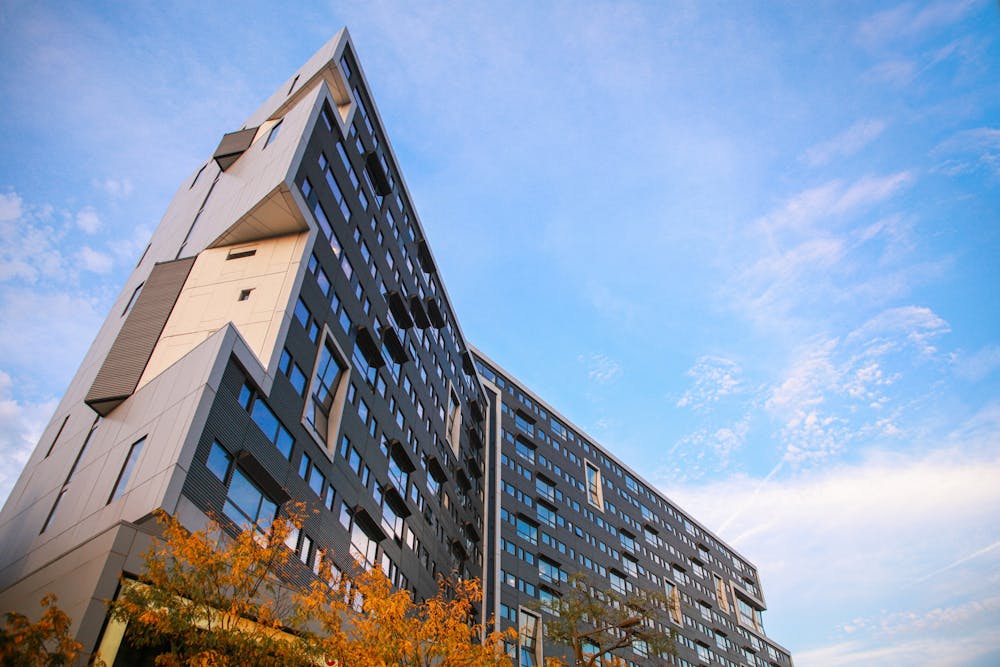
Penn has not shied away from making University housing decisions that do not put students’ needs first, the requirement for sophomores to live in on-campus housing being a recent instance of this. Penn neglected to factor in the added expense that on-campus housing imposed on many students who would have otherwise chosen cheaper off-campus options.
The announcement that Penn would be leasing The Radian to counter the effects of the partial shut down of the Quad during the year for renovations displays another lack of forethought for the students affected — those who currently live in The Radian, along with the second and first-year student bodies as a whole.
Those who live in The Radian are facing an immediate financial burden looking forward to next school year if they choose to renew their leases. An email sent to the current tenants already explained how rent would be raised around $500 a month for the upcoming school year.
The email to current tenants stated that Penn security will be in place, requiring the same check-in process for guests that on-campus housing imposes — defeating the once off-campus feel that many Penn students hoped to find when moving into The Radian. Penn instead is trying to create the feel of on-campus housing, introducing resident advisors, graduate associates, a house director, and faculty fellows into the apartment. Even if current residents choose to incur the extra costs that are associated with Penn’s leasing of The Radian — which in itself could pose a significant financial burden to students — the idea of it being a purely off-campus housing experience is gone.
While the changes to The Radian make it too reminiscent of the on-campus experience for upperclassmen hoping for a change, the inclusion of the apartment complex as an option for second-year students also defeats the purpose of the second-year housing requirement. In rationalizing the change to on-campus housing requirements, the University cited their desire to forge a stronger community amongst both the first and second-year students.
In spite of this mission statement, establishing on-campus housing in The Radian is a decision that isolates students, rather than builds community. While The Radian has study rooms and a fitness center, the building was not constructed with the intention of providing a community to the degree that on-campus housing intends to do, with its central location on campus, copious student lounges, and closely located dining options.
While the first-year students are not going to be living in The Radian, the successive shutting down of Riepe College House, Ware College House, and Fisher-Hassenfeld College House over three years will require some students to be placed in four-year college houses. These include Gregory College House, Stouffer College House, and Lauder College House.
I felt isolated my first year at Penn, but I at least had the solace of living with other students in my same year, who faced the same struggles of adjusting to a new environment while trying to find community. Living in four-year housing strips those who are in these four-year dormitories from having a uniquely first-year experience, risking adding new stresses and pressures for first years who are living with upperclassmen who are already adjusted to Penn.
Ignoring the burden — partly financial, partly social — being put on current residents, future tenants, and first-year students is not a solution to the housing problems posed by renovations.
While Penn may not change their decision, moving forward they must put more consideration into the decisions they make regarding housing, and whether they are hypocritical to their own claims about wanting to foster community. Students should be put first, not what is convenient for the University.
ISABELLA GLASSMAN is a College senior studying philosophy, politics, and economics and Italian studies from Suffern, N.Y. Her email is iglass@sas.upenn.edu.
The Daily Pennsylvanian is an independent, student-run newspaper. Please consider making a donation to support the coverage that shapes the University. Your generosity ensures a future of strong journalism at Penn.
Donate







